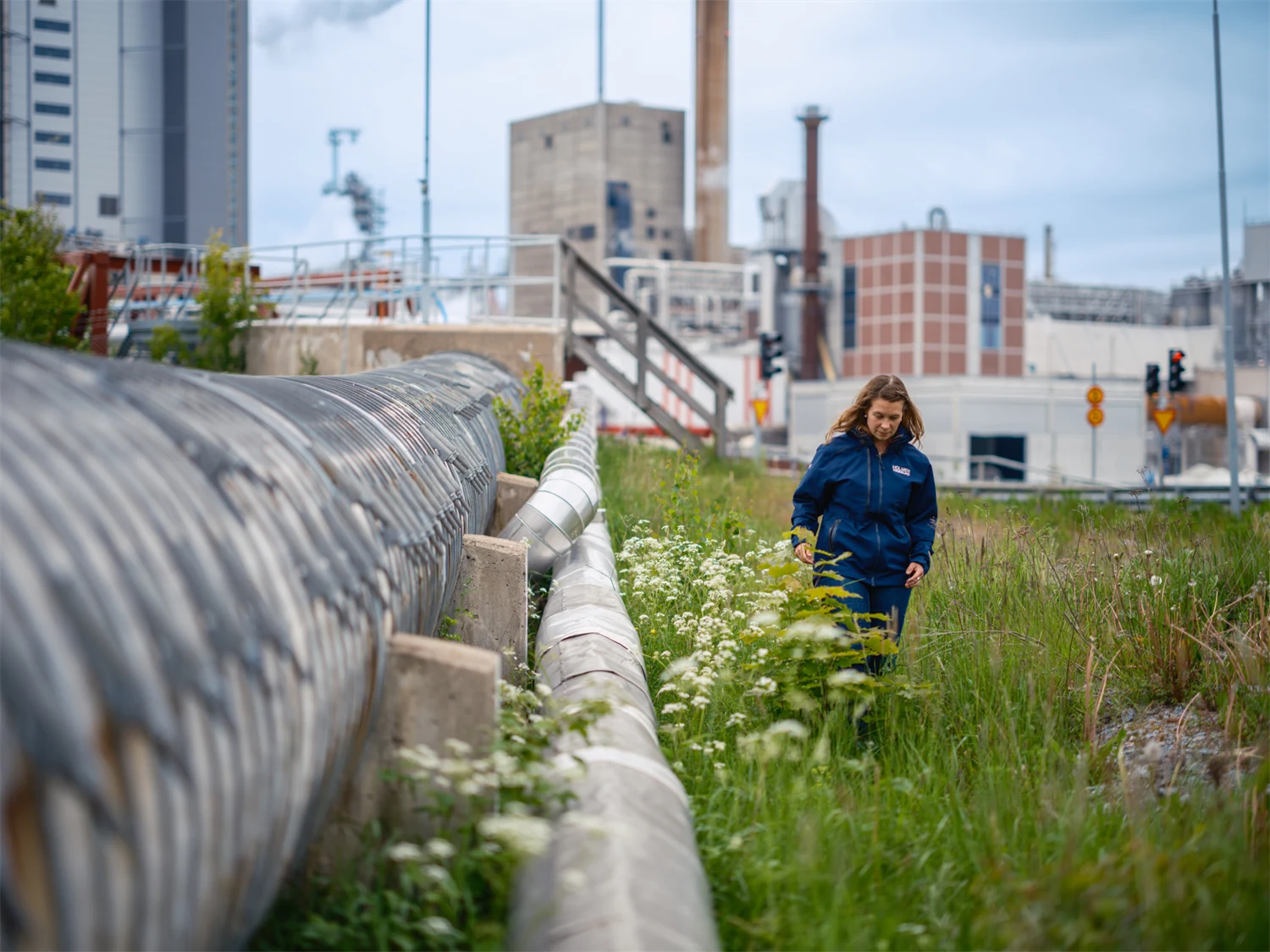Holmen’s mill in Iggesund, Sweden, places great emphasis on sustainability and reducing its climate impact. Over the years, it has delivered on this through steady improvements. Last year alone, the mill reduced its direct fossil CO2 emissions (from 2022 to 2023) by almost 25 per cent – and this was achieved without any major investments.
What mainly contributed to the nearly 4,000 tonne reduction in emissions was a new approach to running the boiler with short start-up time. “When we start up a boiler, we use fossil oil, which has a higher energy density than biofuel. We then quickly switch over to biofuels. Last year we focused on shortening this timespan for oil usage,” explains Anna Nordin Mårtensson, Sustainability Director, Holmen Board and Paper.
“We have become faster,” she adds. “We follow up deviations quicker and engineers, production personnel and others are working more closely together. Our employees are very interested in sustainability, and it is not at all difficult to engage them in these efforts.”
The improvement was also due to efforts relating to internal transports, such as forklifts, trucks and transports to the shipping port. “Almost all of our inhouse vehicles now run on electricity, but some outdoor ones still use diesel,” says Mårtensson. “In 2023 we acquired two new outdoor electric trucks and ordered one more. At the same time, we won’t replace all of our diesel trucks at once. We believe in replacing our fossil fuel-powered vehicles in a gradual and responsible way, taking circularity into perspective.”
Holmen’s mill in Iggesund runs on over 98.5 per cent biofuel today, but efforts will continue to get at the final 1.5 per cent. “We continuously work on improving our sustainability by systemically using energy more effectively says Mårtensson. “We have reduced our total amount of electricity by investing in and using smarter and more efficient equipment and we work a lot with increasing the use of renewable energy and utilising residual heat. Our excess residual heat goes to heating 1,000 households here in Iggesund.”
Sustainability efforts are not new to the company, she adds. “This is a development that has been ongoing at our mill since the 1970s, starting already during the oil crisis when we began looking at ways to reduce our oil usage, and it has continued ever since. Of course, at the time, it was more for economic reasons, but I want to point out that what we’re doing today is a good example of how economics and sustainability no longer need to be in conflict. It’s cheaper to burn biofuel than oil.”
Being based in Sweden is definitely advantageous when it comes to access to fossil fuel-free energy sources such as bioenergy and water for electricity, she adds. “Compare us to an average Scandinavian mill, and we have a very good carbon footprint, which we track according to the Greenhouse Gas Protocol. This is something that our customers highly value and have come to expect of us.”
The ultimate goal? “Our ambition is to continue increasing our climate benefit and to eventually become a fossil-fuel-free mill,” says Mårtensson.
Facts:
Holmen’s mill in Iggesund, Sweden, has been steadily reducing its CO2 emissions.
CO2 emission reductions:
- 2021: 18,116 tonnes
- 2022: 15,683 tonnes (13.3% reduction)
- 2023: 11, 841 tonnes (24.5% reduction)
Only 1.4 per cent of the fuel burned at the mill is fossil-fuel-based. 98.6 per cent of the mill’s fuel is biogenic.


